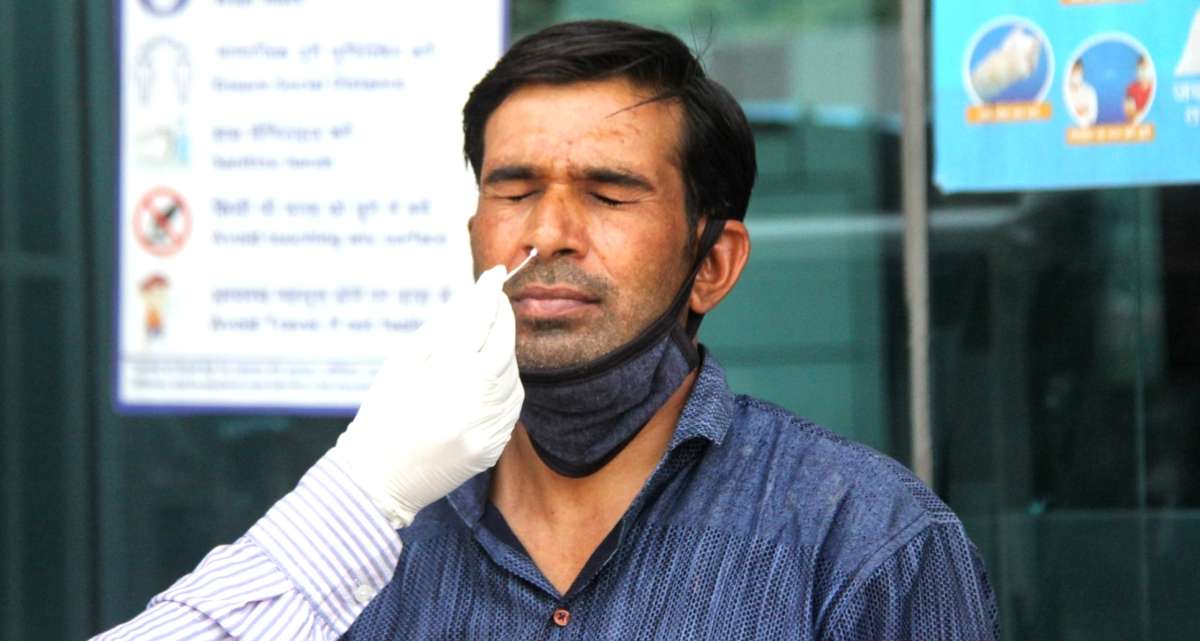Over 10 per cent of people with Covid in the UK consistently reported anxiety or excess worrying since early November, revealed the winter Covid report from the ONS…reports Asian Lite News
India has recorded 602 new Covid-19 infections in the past 24 hours, pushing the the total number of active cases to 4,440 on Wednesday.
The country had recorded 865 new cases on May 19.
Five new fatalities — one each from Karnataka, Tamil Nadu and Punjab, two from Kerala — have been reported in the span of 24 hours, according to the ministry’s data.
As of now, the total number of coronavirus cases in India, since the outbreak in January 2020, has reached 4,50,15, 083.
The death toll related to Covid cases in the country has risen to 5,33,371.
The new variant, JN.1 subvariant is descendent of the Omicron subvariant known as BA.2.86 or Pirola, with Kerala being the first state to report a case.
“A total of 511 cases of the JN.1 series variant have been reported from 11 states till January 2. Karnataka has reported 199 cases of the sub-variant. Kerala has reported 148 cases. 47 cases have been reported from Goa, 36 from Gujarat, 32 from Maharashtra,” the health ministry has said.
The overall recovery from Covid has reached over 4.4 crore individuals, reflecting a national recovery rate of 98.81 per cent.
The country has administered a total of 220.67 crore doses of Covid vaccines, as per the available data.
Symptoms
Health authorities in the UK have identified anxiety and trouble in sleeping as new symptoms of the latest Covid-19 sub-variant JN.1, according to a report.
JN.1, from the lineage of Omicron, was first detected in August and is currently present in over 40 countries.
It has been classified as a variant of interest (VOI) by the World Health Organisation (WHO), due to its rapid spread.
JN.1 is a descendant lineage of BA.2.86. In comparison with BA.2.86, JN.1 has the additional L455S mutation in the spike protein, making it more transmissible. However, no signs of new or unusual symptoms caused by the virus have been reported yet.
So far, the symptoms reported are mostly restricted to upper respiratory tract infections such as fever, cough, sore throat, body aches, and runny nose.
But recent data from December 2023 by the UK’s Office for National Statistics (ONS) spotted two new symptoms: trouble sleeping and anxiety.
Over 10 per cent of people with Covid in the UK consistently reported anxiety or excess worrying since early November, revealed the winter Covid report from the ONS.
The most common Covid-19 symptoms are runny nose (31.1 per cent), cough (22.9 per cent), headache (20.1 per cent), fatigue (19.6 per cent), muscle pain (15.8 per cent), sore throat (13.2 per cent), trouble sleeping (10.8 per cent), and anxiety (10.5 per cent), the data showed.
Interestingly, the once-common loss of taste and smell is currently reported in only 2-3 per cent of UK cases.
But whether a person will experience some or all of these symptoms, including those that have not previously been commonly reported, largely depends on each individual’s health and immunity to the virus.
The findings come at a time when there is a fresh global rise in Covid infections. As per the WHO, the global number of new Covid-19 cases has increased by 52 per cent during the last one month.
The UN health body also reported an increase in hospital, ICU admissions as well as deaths globally.
Meanwhile, India recorded 573 fresh cases of Covid and two deaths in the last 24 hours, the Union Ministry of Health and Family Welfare said on Tuesday.
The total number of active cases stands at 4,565. The country reportedly also has a total of 197 cases of the JN.1 from 11 states — Kerala, Goa, Gujarat, Odisha, Karnataka, Maharashtra, Rajasthan, Tamil Nadu, Telangana, Odisha, and Delhi.
“Overall cases are mild and severity is seen in only less than 10 per cent of the cases, and only when people are having previous comorbidities, involving lungs and old age,” Dr Kirti Sabnis, Infectious Disease Specialist, Fortis Hospital Mulund told IANS.
“Generally, the fatality rate is less than 2 per cent, deaths are occurring very sparingly and is not a common feature,” she added.
The doctor said there are also “no severe illnesses” seen among patients and “not many people are requiring hospitalisation, because of JN.1. Majority of the patients are getting better at home”.
The doctor advised using masks, maintaining hand hygiene and to avoid public gatherings if one is sick.













